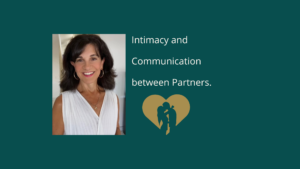Being connected is one of the most basic needs in any relationship. Intimacy in a couples’ relationship shares emotional and physical connectedness, in either a sexual or non-sexual way. Intimacy is the glue that holds a couples’ relationship together.
Emotional intimacy is at the foundation of any healthy long-term romantic relationship. Emotional and physical intimacy can translate differently between partners, depending on their perspectives, experiences and expectations on how they would like to be close. Ultimately emotional intimacy creates a deep sense of security and belonging within a couples relationship and the ability to be yourself without feeling resentful, distant or isolated. Intimacy doesn’t just have to be romantic, vulnerability and acceptance go a long way too.
Too often the perception of intimacy can be over-sensationalised by social media or the perceived social norms of what intimacy ‘should’ be. Couples in session with me will hear me say ‘let go of the shoulds’. Healthy intimacy is what suits the couple’s version of their ‘normal’, that allows them to feel emotionally connected, loved, secure, safe and physically connected to their preferences, however that plays out in the privacy of their world.
Dealing with intimacy problems in a relationship
A lack of intimacy in a relationship may occur for various reasons, here are some ways of restoring intimacy in a relationship:
1. Talk it out
Assuming or trying to read between the lines with your partner will eventually lead to misunderstanding, frustration and lack of connection. Much of the intimacy hinges on the foundation of emotional closeness between two people.
Couples may get caught up in everyday life tasks and may overlook their emotional and physical closeness until it comes up in an argument ‘you don’t want me anymore’, ‘I try to get close but you push me away’, ‘why bother’.
To bridge that gap of getting close to your partner, be willing to talk openly about how you would like to be intimate, remembering to keep an open heart and open mind. Often I say to my couples in session ‘be more curious and less judgemental of your partner’, ‘ask about what their needs are’, ‘what turns them on and what turns them off’. When couples talk about these areas it helps to build their capacity to be heard, felt and understood in what intimacy means to them.
2. Work through resolving issues
Arguments are a normal part of most couples relationships. However, when negative feelings like anger, resentment or mistrust interfere with a couples intimacy, there is a lot more going underneath that needs to be explored. These could be unresolved past hurts from within the relationship, or maybe from a previous relationship or possibly from past traumas such as; abuse, neglect, enmeshed relationships, manipulation, abandonment or a particular past event. Generally unresolved issues will surface when a partner is in that intimate vulnerable place with their partner.
When I identify couples are emotionally heightened due to their past unresolved pain or trauma, I gently work with them in couples and individual sessions – to help them explore their patterns, their core beliefs around relationships and how they can adapt to a more positive connection within themselves and their partner.
3. Have fun together
There’s a saying ‘a couple that plays together, stays together’.
Go out and have some fun doing things you both enjoy. Plan regular dates, day or night – it doesn’t have to cost the earth, keep it real. This increases those feel good hormones of serotonin and endorphins that make us feel happy and who knows where that could lead (*wink of an eye*)
4. Give your partner daily affirmations and gratitudes
Whether you’re a few months into the relationship or 50 years in deep, make a habit of giving specific compliments and affirmations to your partner, however small or trivial it may be, this shows your appreciation for them. Neither partner wants to feel invisible nor unappreciated. It could be as simple as in passing by and saying ‘hey, I love you babe’ (with a cuddle) or ‘I really appreciate you doing (xyz) for me’ or ‘thanks for helping me when I was flustered before’.
Maybe you also like to demonstrate your gratitude by acts of service in ‘doing stuff’. My couples in session have a little laugh when I talk about an example of this analogy in ‘taking the wheelie bin out to the curb’. It’s a no-brainer, speak and treat your partner as you would like to be.
5. Engage with a Couples Counsellor
Relationship counselling can help a couple explore their challenges around intimacy and re-discover ways of emotionally and physically connecting with each other again. Seeing a Couples Counsellor before problems become too far gone and unmanageable is a proactive and effective step to help improve the relationship.
Linda Kelly offers counselling for those who seek support to work through the complexities of their intimacy within their relationship.






